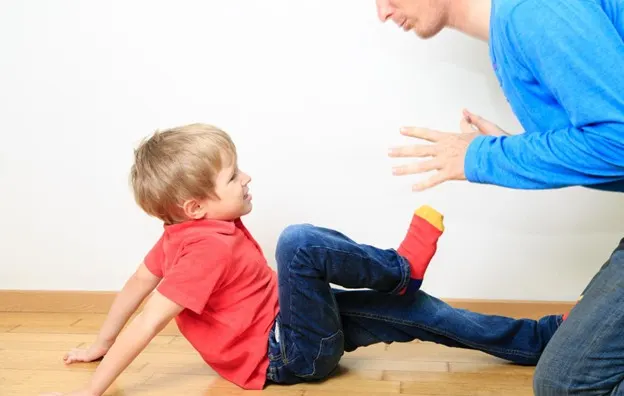How to Manage Child Aggression at Home: A Comprehensive Guide for Parents
July 7, 2025

Introduction
When your child lashes out, perhaps hitting a sibling or erupting during a simple chat, it can feel like your home is a constant pressure cooker. For parents of children with special needs, aggressive behavior is a common hurdle that disrupts family life and tests your patience. You’re not alone, and there are effective ways to ease these moments and foster a happier household. This guide dives into why aggression happens, offers actionable steps to manage it, and shows how expert support can transform your family’s dynamic.

Why Does Aggression Happen?
- Aggression in kids with disabilities often stems from frustration, sensory overload, or trouble expressing emotions. A loud room, a sudden change in plans, or an unmet need—like hunger—can spark an outburst. It’s not about “bad parenting” but about your child needing tools to cope. Understanding these triggers helps you respond with empathy and strategy.
The Impact of Aggression
- Left unchecked, aggressive behavior can strain relationships with siblings, dim your child’s confidence, and leave you feeling drained. Addressing it early builds skills like self-control and strengthens family bonds. Small changes today can lead to a more peaceful tomorrow.
10 Practical Strategies to Manage Aggression
Here are ten hands-on tips to help you reduce your child’s aggressive behavior and create a calmer home.
- Set Simple Rules
Create clear rules like “Keep hands to yourself.” Write them on a bright poster and hang it where everyone can see, like the living room. Go over them daily and reward following them with a thumbs-up or small treat. Clear expectations guide your child’s actions.
- Build a Safe Space
Set up a “chill zone” with cozy items like a beanbag or squishy toy. When your child starts to escalate, gently say, “Let’s visit the chill zone.” Practice using it during calm times so it feels familiar. This space can cut outbursts significantly.
- Stay Cool Under Pressure
When aggression flares, take a deep breath and use a steady voice: “I’m here to help.” Your calm demeanor shows your child how to handle big feelings. Avoid raising your voice, as it can fuel the fire.
- Celebrate Kind Moments
Notice when your child is gentle, like playing nicely with a sibling, and say, “Wow, you’re so kind!” Offer a sticker or extra story time. Highlighting positives encourages more of the same.
- Teach Words for Feelings
Aggression often means your child can’t say what they need. Use picture cards with words like “mad” or “help” to practice expressing emotions. Role-play during playtime to make it fun and natural.
- Spot the Triggers
Aggression often means your child can’t say what they need. Use picture cards with words like “mad” or “help” to practice expressing emotions. Role-play during playtime to make it fun and natural.
- Stick to a Routine
A daily schedule—breakfast, play, bedtime—reduces surprises that spark aggression. Use a visual chart with pictures and a timer: “Five minutes until we tidy up!” Predictability soothes your child.
- Offer Calming Activities
If sensory issues drive aggression, try activities like squeezing a stress ball or wrapping in a blanket. Introduce these during quiet moments to build coping skills. Calming tools work wonders for many kids.
- Play Games for Self-Control
Games like “Freeze Dance” teach stopping on cue. Play for 10 minutes daily, cheering effort: “You froze so fast!” Fun practice builds skills that curb aggression.
- Get Expert Guidance
A Board Certified Behavior Analyst (BCBA) can pinpoint triggers and craft a plan just for your child. VillageED’s specialists offer tailored strategies to make your home a happier place.


Create a Stronger Family
- Managing aggression is a journey, but every step counts. Celebrate progress, like a day with no hitting, and plan fun family activities, like movie nights, to reconnect. Your love and effort are shaping a brighter future.
Knowing When to Reach Out
- If aggression intensifies or causes harm, don’t wait—connect with a specialist. They can uncover underlying issues, like undiagnosed needs, and suggest solutions, such as therapy or an IEP, to support your child.
How VillageED Supports You
- VillageED knows how tough aggression can be. Our free webinars and 1:1 assessments with certified specialists give you tools to manage behavior and rebuild family harmony. Explore our online resources for practical parenting tips.

